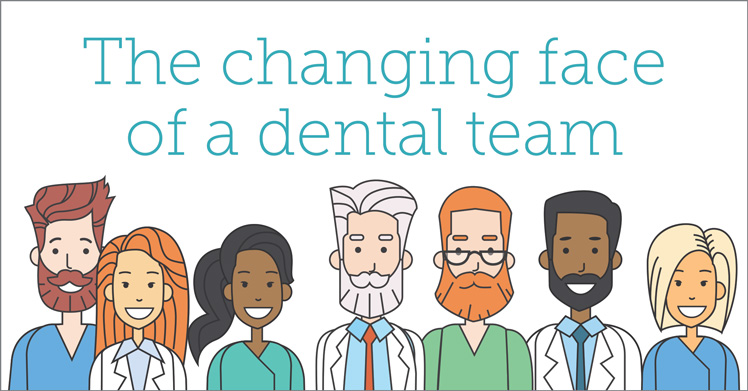Zoe Close, Area Sales Manager for Practice Plan, reflects back on how practice life has changed over her 30-year dentistry career.
In the past 30 years, the world has changed significantly. Back in 1987, when I first began working in dentistry, there was no such thing as the iPhone or Amazon (the store, not the rainforest!), no one had heard of Barack Obama and Ed Sheeran hadn’t even been born.
While not wishing to draw parallels with some of the above, but thinking about the last three decades a little bit closer to home, there have also been big changes in the world of working within dentistry. The make-up of a practice team has transformed since my first days as a dental nurse, when the role of practice manager barely existed – which seems hard to imagine now.
“There have been big changes in the world of working within dentistry. The make-up of a practice team has transformed since my first days as a dental nurse, when the role of practice manager barely existed.”
Practices were very much led by the principal who was responsible for the entire running of the business alongside his/her clinical work. But over the past 20 years the role of practice manager has become more and more common, to the point where now – perhaps with the exception of some single-handed practices – it’s rare for a team to be without one.
Other new additions to teams have appeared and become more popular over the years, such as treatment coordinators, hygiene/therapists plus decontamination nurse. In large part I think this has been driven by principals realising the benefits in sharing the workload for the business side of dentistry, especially as it’s arguably become more challenging due to changes in HR and clinical governance.
Whilst more stringent regulations can be frustrating sometimes, I believe it has had some positive changes in the way teams are run. Having someone dedicated to managing the practice means that there’s more time for building the team and the business, rather than focusing solely on treating patients.
“As staff become more valued, they feel more appreciated, which helps to create a happier, smoother working environment.”
It can only be a good thing that there is now more investment in staff in terms of training and development, for example via appraisals, which certainly wasn’t the case when I was a dental nurse. As staff become more valued, they feel more appreciated, which helps to create a happier, smoother working environment.
One role in particular whose value has risen over the years is the receptionist. At one time, they were often seen as responsible for answering the phone and booking appointments, but they are now recognised as important, as the first point of contact with a patient and an ambassador for the practice. The way in which they interact with patients can make all the difference in turning enquiries into appointments – making them one of the most valued members of the team.
Another key change, which has had an impact on the value of each team member, is that no one works in silo within the practice. Most practices now have regular meetings to discuss any issues and the strategy for the business, so everyone feels like they are contributing to the journey of the practice. CQC regulations have also had their part to play as they expect knowledge about practice life and policy to be embedded across the whole practice.
“These changes have all had huge benefits for patients as well as practices.”
These changes have all had huge benefits for patients as well as practices. For example, the proliferation of treatment coordinators over the past 10 years or so, means patients get to have lengthier conversations about their options and therefore, often feel they are receiving a better service. The number of specialists in practices has also increased meaning there are more options available to patients.
On top of that, by creating a more inclusive, well-rounded team where staff are happy, the environment of the practice must be more positive and pleasant for the patient as well. No doubt there will be more changes to come, especially with the new NHS contract and the constant drive to improve standards, so the picture could look very different again by 2047.
[mc4wp_form]
